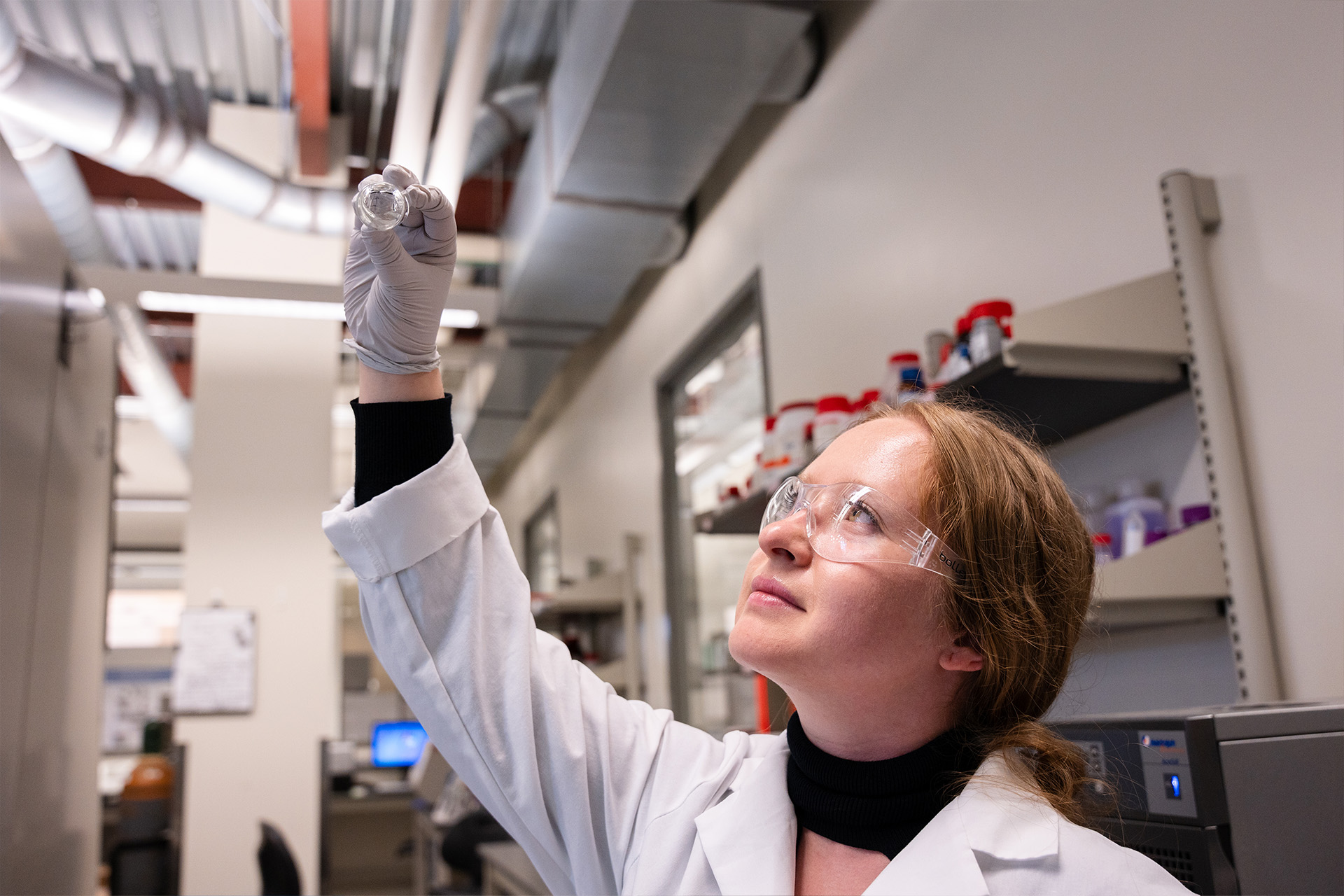Imagine if doctors could optimize treatment of fibroids or ovarian cancer by working with the natural hormonal fluctuations of the body to ensure someone received treatment when it was most effective. What if the medication were also specifically designed to target just one part of the body and reduce negative side effects? Engineers at The University of New Mexico are working to make this targeted medical technology a reality.
Olivia Lanier, assistant professor in the Department of Chemical and Biological Engineering, was recently awarded a Maximizing Investigators' Research Award (MIRA), a five-year $1.8 million grant from the National Institutes of Health (NIH) to determine how males and females respond differently to nanomedicine throughout their lives. The work will specifically look at how hormonal changes experienced throughout the menstrual cycle, pregnancy, hysterectomy and menopause impact drug efficacy. Then, Lanier's lab will re-engineer its own nanoparticles for sex-specific applications.
"Ultimately, the goal of this grant is to close critical gaps in women's health by making nanomedicine more precise, effective, and inclusive," Lanier said. "By understanding the biological differences that shape drug delivery, we hope to create therapies that are truly tailored to diverse patients across life stages, and bring us closer to equitable healthcare solutions."
The MIRA is designed to boost scientific productivity in health and medicine by providing researchers with the stability and flexibility needed to encourage breakthrough science. Nanoparticles are currently used in a number of medical interventions, including chemotherapy, vaccines, pain management and MRI contrast.
"By understanding the biological differences that shape drug delivery, we hope to create therapies that are truly tailored to diverse patients across life stages, and bring us closer to equitable healthcare solutions."
– Assistant Professor Olivia Lanier
Women have long been an understudied area of medicine. Drugs are 3.5 times more likely to be pulled from the market due to safety issues in women, according to a 2024 report from McKinsey Health Institute, a figure Lanier said speaks to the historic exclusion of women in drug trials. Nanoparticles have seen a similar one-size-fits-all approach, despite being used to deliver drugs with known sex differences. From immune system activity to liver enzyme metabolism and even how proteins bind to nanoparticles in the bloodstream, males and females differ in many biological process that determine drug behavior, according to Lanier.
The first phase of the research will rely on human blood, vaginal mucous samples and animal models to help identify the mechanisms driving differences between how males and females respond to medicine.
After making those determinations, Lanier's lab will turn its attention to the use of nanomedicine through vaginal drug delivery, an "underutilized, but promising" opportunity for treatment of conditions like ovarian cancer. This lesser-explored drug delivery route presents several potential advantages, like self-administration, localization, and direct access to hormonally regulated mucosal and reproductive tissues.

Angelea Maestas-Olguin, a postdoctoral fellow in Lanier's lab, has developed a "vagina-on-a-chip" model that will allow the engineers to test how nanoparticles and delivery systems interact with the vaginal barrier under realistic physiological conditions. The model will aid the research team as it studies sex and hormone-specific nanoparticle pharmacology and seeks to develop effective, safe and inclusive drug delivery platforms.
"We're developing innovative delivery platforms, such as thermo- and enzyme-responsive hydrogels and biodegradable polymer discs, that can release nanoparticles locally or enable systemic delivery through the vaginal blood supply," Lanier said. "This approach has the potential to transform treatments for conditions that disproportionately affect women, from reproductive cancers to fibroids and beyond."
Lanier joined UNM last August after completing a postdoctoral fellowship at University of Texas at Austin. In addition to her work in the School of Engineering, she is an affiliate faculty member in the School of Medicine's Department of Cell Biology and Physiology and a member of the Cancer Therapeutics Program at the UNM Comprehensive Cancer Center.






